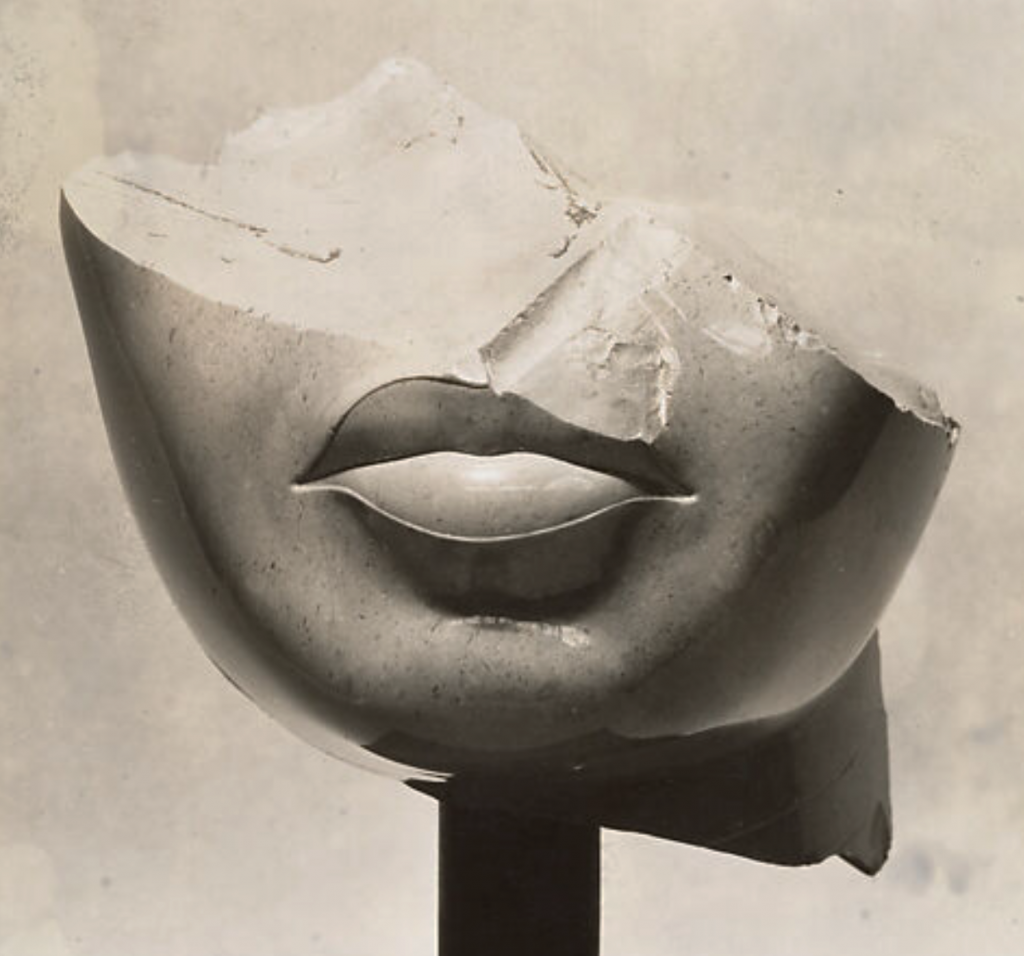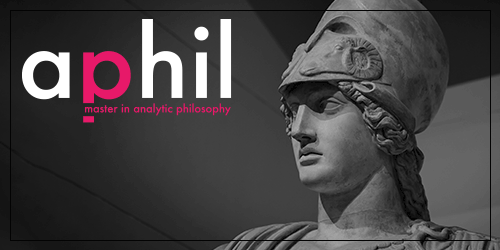BGSU Threatens Whistleblower Philosopher’s Job
Christian Coons, associate professor of philosophy at Bowling Green State University (BGSU), is facing disciplinary proceedings that could lead to his termination for a series of events that began with him raising questions about how a job search was conducted, continued with him voicing concerns about the lack of evidence being considered in an investigation of his department, and led recently to his being removed from campus mid-semester for sending emails asking for clarification and support.

[Charles Sheeler, photograph of Egyptian Sculpture, Metropolitan Museum of Art (detail)]
The controversy began in 2015, when the department hired a professor and Coons felt the candidate did not meet the qualifications for a history of philosophy position. Coons was told that “the application alone leaves out critical information that is very important,” and he soon found out what was so important about this professor. In 2019, that professor helped the department receive a $1.6 million grant from the libertarian Charles Koch Foundation. Coons has expressed his view that the Koch money corrupted the hiring process in the department and continues to occasionally raise these concerns in emails to colleagues…
There is no doubt that Coons’ colleagues and the administration are annoyed at him and would prefer he shut up about the past disputes. Unfortunately for them, both academic freedom and the First Amendment do not allow their preferences to be imposed on Coons.
Coons is accused of three crimes: sending emails to faculty who didn’t want to receive them, insubordination for violating an order not to send emails, and violating a provision in the union contract urging faculty to show “respect” toward others.
First, there is no right not to receive email. People are perfectly free to ignore Coons, but not to silence him. What Coons wrote does not meet a harassment standard.
Second, there is no subordination because there was never a direct no-contact order to Coons that sending emails would violate campus policies. (Indeed, in a Feb. 1, 2023, email that led to his suspension, Coons wrote, “I still need a rule for the emails I can’t send you. I’ve asked for guidance from everyone, and no one will share any rules.”) And there wasn’t a direct order because a ban on sending emails is not legal.
The third charge against Coons is more complex, but equally implausible. Coons is accused of violating a provision of the collective bargaining agreement (CBA) stating that faculty “should be respectful toward all members of the university community and are prohibited from any oral, written, or physical actions that: (a) have the purpose or effect of unreasonably interfering with an individual’s employment or professional performance; and/or (b) have the purpose or effect of creating an intimidating, hostile, offensive, or abusive climate for an individual’s employment, academic pursuits, living environment, or participation in a University activity.” Obviously, saying that faculty “should” be “respectful” is not enforceable, but creating a hostile climate is prohibited. Still, it’s hard to imagine how unwanted emails from someone powerless to do anything can be deemed a hostile climate. (Coons’ critics and the administration, by seeking to have him punished for his emails, have much more clearly violated this rule by creating an intimidating climate for Coons.)
The background to these complaints is complicated. (Some of it is described in this previous post.) Coons himself has described the situation this way to me:
In Spring 2018 I made a report of retaliation for internal complaints of illegal activity in my department—including sexual discrimination, fraud, and possible self-dealing. The complaint and reports were directed away from the appropriate channels, and sat for a year in the College of Arts and Sciences. The investigation was quickly conducted in May 2019 by a pair of assistant deans and then closed—without notice or action taken. On this all parties seem to agree. The dispute is about the nature of the investigation.
I maintain the investigation was “fake”—all evidence was barred, the findings were inaccurate, and it exploited and knowingly suppressed the retaliation I had tried to complain about. I have experienced persistent unjust retaliation just for complaining about the matter.
BGSU and my peers maintain the investigation was “sound,” that my allegations are either delusions or malicious fabrications, and that I have no grounds for complaint about my long-pending 2018 retaliation charge, because three years later a “neutral investigator,” an outside lawyer, unofficially looked into the central allegations.
Coons maintains that the outside lawyer’s investigation was partisan, flawed, and defamatory of him.
He says:
The current administrative action in which I am named is the latest in a series of blatant acts of discrimination, retaliation and abuse taken against me following my initial questioning of the propriety and legality of a faculty selection process in my department in consecutive years.
The evidentiary record reveals the work environment in BGSU Philosophy exhibits an extreme and expanding crisis of illicit, abusive, sexually discriminatory, and retaliative conduct. It also reveals BGSU Administration has just one pattern of response: unrelenting, costly, and extreme cover-ups and retaliation.
I had been subject to escalating sequences of retaliation like this before—in 2016, 2018, and 2019—without remedy. All for reports of misconduct, and each including objections to sexual discrimination. But I have never recovered from what happened in 2019.
In Summer 2019, I made my first public complaints about the Fake Investigation, and the neglected reports of abuses by my Chair. My peers, directed by [Colleague X], said I may not mention any misconduct by the Chair (during the Chair Succession Meeting) as it already had been thoroughly investigated by the assistant deans. But the allegations against my Chair were not even in the scope of that investigation. [Colleague X] knew my allegations were true and asked to help, he had seen the evidence—just please be quiet until his Koch grant was signed—he pleaded. So I did. Now that it was signed, however, he and everyone else—with the help of BGSU Administration—went into cover-up mode and fabricated things, apparently to have me fired.
The emails from Coons that form the basis of the current disciplinary hearing—which are supposed to be instances of Coons creating a hostile workplace for his peers and of violating a university “diversity and respect for the individual” policy of treating members of the university community “with civility and respect,” and which are supposed to warrant his removal from campus and possible termination—followed a philosophy faculty meeting about a new departmental statement of principles and reporting policy. At the meeting, Coons says, he voiced worries about the new policy given the department’s history, referring to the retaliation he says he was subject to for making the kinds of reports that the new policy requires. In response, Coons says, “the chair agreed to share evidence that might help address the concern, and was open to discussion and polling among the faculty prior to the vote. No faculty member objected. The vote was then announced by the Chair, via email.” You can read these emails (along with some others, for context) in chronological order here.
Molly Gardner left BGSU in 2020 to take a position at the University of Florida. On Twitter, she writes that the BGSU Philosophy Department seems to be involved in the “coverup” strategy of “make Christian Coons’s life so miserable that he resigns.” She adds: “I mean, they also made my life so miserable that I resigned. That’s part of it, too. I applied for at least 20 different academic jobs, and if I didn’t get any of those jobs I was making plans to just leave academia.” She collects various Twitter threads she has posted about the situation at BGSU here. Some of these (e.g.) concern the consideration and treatment of women candidates during a job search conducted by the department in 2015-16. Others concern the environment there, such as this thread in which the chair appears to lie to cover-up a false statement he made that Coons opposed hiring her.
David Faraci (Durham), who earned his PhD at Bowling Green in 2012 (Coons was on his committee), has also written about the situation at BGSU on Twitter, noting “how hard it is to talk about a case this complex, especially to share evidence when its weight in isolation is so different from its weight in combination.” You can read his thread on it here.
In his post about Coons’s case, Wilson focuses on the punishments that Coons has been subject to and his possible termination:
Bowling Green needs to reject the idea that professors can be fired for critical emails, and fix procedures to ensure that investigations of protected speech (and preemptive suspensions) never happen again. If Bowling Green fires Coons for making allegations of corruption, they will prove he was right.
A hearing about Coons’s possible termination had been scheduled for yesterday but has been postponed.
Note: comments on this post are closed. Those who have firsthand knowledge of what has been happening at BGSU philosophy are welcome to email comments to [email protected] for possible inclusion in an addendum to this post.
EMAILED COMMENTS
- “I am a former faculty member in the philosophy department at BGSU. I did not overlap with Christian Coons, so cannot speak to the concerns he and others have raised about hiring, gender discrimination, and retaliation in the department during the years he has been there. However, I can say that there were acknowledged hiring and other serious procedural irregularities while I was there. The gender dynamics in the department and with administrators ranged from unpleasant to open violations of university harassment and discrimination policies. Procedural irregularities included the cover up of wrongdoing by both faculty and college administrators with knowledge of the wrongdoing.” — from a philosophy professor who asked to have their name withheld. March 23, 2023.


